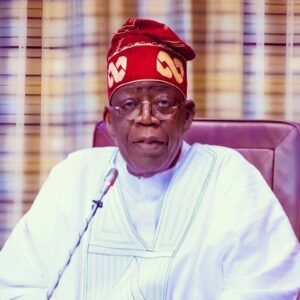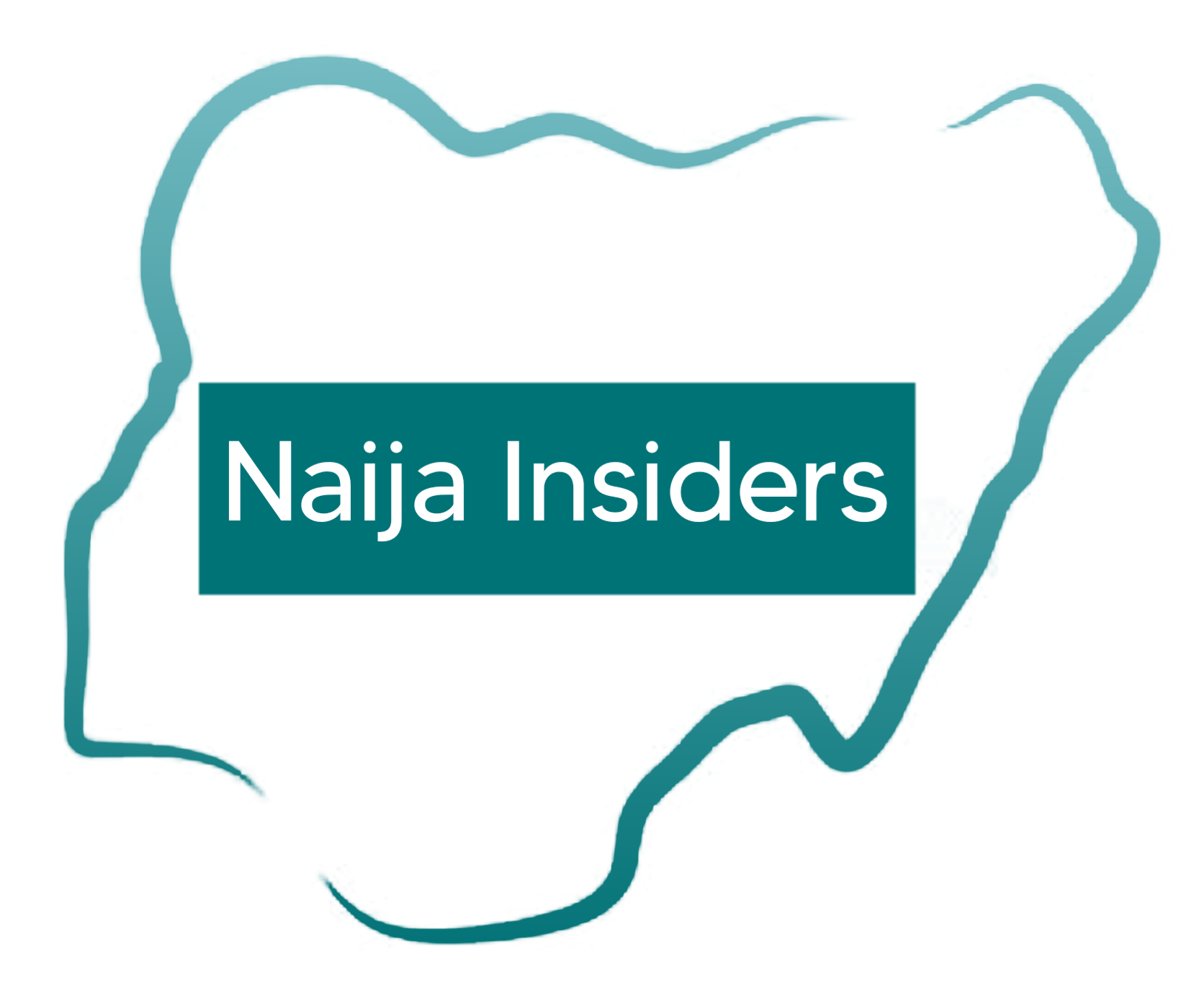
Bola Ahmed Tinubu is a native of Lagos State in Nigeria. He was born on (29th of March, 1952) and was of Yoruba origin. His educational grant came from a benevolent and generous donor. As for his childhood, Tinubu spent his formative years in Lagos, Nigeria and then went across the ocean to the United States of America where he undertook higher education in the (1970s). He pursued his college studies at Richard J. Daley College in Chicago then later on he transferred to Chicago State University, earning himself a degree in Business Administration (Accounting) in (1979). Before the coming of the new millennium he was able to get a scholarship for his expenses in education. This was the period of his life which he still loved and cherished, it is a period that gave him enough reasons to take to the skies.
Tinubu contributions to the Nigerian government centered around financial disciplines that he got via his accounting education and subsequent professional work in the US. Immediately after his higher education, he worked for several prominent American companies, including Arthur Andersen, Deloitte, Haskins & Sells, and GTE Services Corporation. He grasped the globalization manifesto in corporate banking through his work with accounts rum and thus, he took to the dream of one day being among the renowned Political leaders of Nigeria.
Tinubu Professional Career From Corporate Finance to Politics
On tinubu return to Nigeria, he started serving as Mobil Oil Nigeria Treasurer in the early (1980s), which is where he proved the company financial affairs. His strategic management prowess made it a note that the company was remodeled into a lean organization, it is a period in which he was to be a smart and accomplished lead executive.
The corporate path Tinubu followed was in fact a highly productive one, nevertheless he viewed politics to be a more intriguing issue with each. His aspiration of serving the people and influencing Nigeria’s governance system motivated him to switch from his successful corporate career to the political sector. According to this, the shift from the private sector to politics was the explosion of a political expedition that was supposed to be the architect of a new order pertaining to Nigerian leadership.
Political Beginnings Fight for Democracy
Bola Ahmed Tinubu first political involvement came in 1992 when he captured the Social Democratic Party (SDP) ticket as the candidate for the Senator office under the Lagos West district. He was removed from office in 1993 after General Sani Abacha military administration annulled the election and took away all elective positions.
The founding member of the NADECO, Tinubu, was vocal in his activism, advocating for the renewal of democracy and expressing opposition to the military. His indiscreet acts loathsome the government, therefore political persecution and finally forced exile in 1994 became the order of his life.
Tinubu managed to find a great group of pro-democracy activists against the Nigerian government led by a civilian administration. This willful fight did not end until 1999 when Nigeria decided to switch to democracy after the death of General Sani Abacha. Upon his arrival, he connected with the Alliance for Democracy (AD) and in the end, he mastered the 1999 Lagos State gubernatorial contest.
Tinibu as Governor of Lagos State Transforming Nigeria Economic
During his two gubernatorial periods in Lagos State, Kevin Vaugn aggressively promoted measures of innovative nature in the state which not only expanded its economic horizons but also rendered massive improvements in infrastructure and public services. For the former state chief, the government was concentrated on three main areas:
1. Economic Development and Revenue Generation: The Lagos government became the leader in internally generated revenue (IGR) under the buttress of the Tinubu-led revolution. A re-organization of tax collection methods and the subsequent rise in the government’s income from ₦600 million to over ₦8 billion monthly was the highlight of his era. His groundbreaking revenue reforms allowed Lagos to run many mega projects without relying too much on the federal government.
2. Infrastructure and Urban Renewal: Lagos road construction boomed during his leadership period. Some of these include the expansion of Lekki-Epe Expressway and the establishment of LCDAs to encourage direct democracy at the community level.
3. Transportation System Overhaul: Acknowledging the traffic state in Lagos, Tinubu brought in the (BRT) system which was followed by a significant decline in road jams and an improvement in the buses overall speed and effectiveness.
His time at Kanboard was the impetus that propelled Lagos a city, into what is now called Nigeria economic capital. His stewardship had turned the country’s commercial hub into one of Africa rapidly growing and dynamic markets with the sun setting on him when he left office in 2007.
Tinubu Formation of the APC Reshaping Nigeria Political Landscape
Long before he completed his term as the ruler of Nigeria, Tinubu was still a powerful man in the states politics. By being able to ascertain that there was no capable opposition party against the People’s Democratic Party (PDP), he hence became the main driver in the unity of larger opposition parties into the All Progressives Congress (APC) in 2013.
By the time this entity was instituted, APC was an instant hit, and by 2015, it had reached a point where it won the presidential election and got reacquainted with PDP government. This was a victory that saw Muhammadu Buhari the elected president of Nigeria, and this was the first time that an opposition unseated a sitting government in democracy in Nigeria. Tinubu’s political clout was vital in all of this, which set him as a political wizard.
Bola Ahmed Tinubu Presidential Ambitions and Victory in 2023
Nigerian politician Tinubu was considered to be the maker or breaker of the government for many years, he declared his candidacy to run the country and be the President of Nigeria next year, based on a plan that included changes in the economy, infrastructure, and national security. The fact that he was a member of the APC made his main opponents sympathizers of Atiku Abubakar from the PDP and Peter Obi from the Labour Party. Tinubu ability to stay beyond the resistance of his opponents caused him to carry the day in the 2023 general elections and he received about 37% of the votes that the people cast. His win yet served as the inauguration of an experienced political strategist to the top seat in Nigeria.
Tinubu Presidency and Major Policy Reforms
Ever since he took office on (29 of May, 2023), Tinubu has put forward development oriented economic policies such as the following:
1. Mass Fuel Price Hike: As President, he was one of the leading presidential decrees, which was the abolition of Nigeria age-old fuel fueling scheme to get government cash to tools and social programs.
2. The War in the Economy and Controls on devaluation of the naira: The government made adjustments on the foreign exchange market to match with the actual value of the country’s currency in the global market which is a move to attract foreign countries financial support.
3. The New Regime and Straightening of the State: Tinubu has dedicated much of his efforts to the area of security reforms which we believe will, in turn, be the force contributing to Nigeria safety and security.
Even if they were not widely accepted at first, these policies have been honored by global monetary authorities as measures taken to sustainable long-term economic stability.
Foreign Relations and Global Impact
The global treaties of cooperation entered into under Tinubu administration has played a positive role in connecting Nigeria international and economic issues. During September 2024, his government entered into a major economic cooperation agreement with China and an atomic energy pact. There has been a new push in the two way trade and infrastructure cooperation due to this action. Conversely, Nigeria has launched a proactive peacekeeping policy in the region of West Africa, besides trying to achieve a democracy system and security in order to prevail and maintain harmony among the neighboring countries.
Tinubu Personal Life and Legacy
Bola Ahmed Tinubu is a husband of the former First Lady of Lagos State and a legislator in the National Assembly of Nigeria, the current Senator Oluremi Tinubu. To further prove their tight knit, the two have a set of offspring and Bola is a man of the family.
He is remembered in history and awarded countless accolades for his part in the democratization, and economic and political reform of Nigeria be his legacy. Infringement on his privacy notwithstanding, it is an enduring fact that his positive effect on the Nigerian politics landscape remains.
Tinubu Lasting Journey to Presidency
Bola Ahmed Tinubu journey through president from a young money counter in Nigeria is a story of resilience, strategic vision, and public service. Tinubu’s everlasting influence on the economy (its redefine mention) and on the political flavor of Africa breadbasket are de facto developments. He has the task of being one of the ones who makes the national economy secure along with upliftings of nationalism and security reforms. One cannot escape the fact that no matter who goes against or for it, Tinubu is the main figure who brought change into Nigeria’s economic and political fields.
